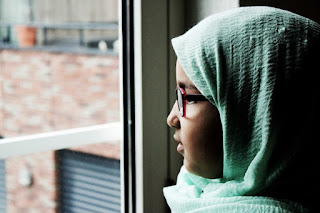Is learning Islam at school compulsory for your child? Let’s get to know…
This is a common question on our lively information forum as Dubai mums are unsure about the school curriculum. You see, Islamic Studies is a course developed as part of the islamic schools in the UAE. Along with the exciting lessons on the basics of Islam, many new immigrants wonder if their children should attend this class, even if they are not Muslim.
Although private schools offer the study of Arabic and Islamic languages in their curricula, according to the Ministry of Education, students are only required to attend Arabic classes for a specific year, while studying Islam is optional for non-Muslims.
A teacher of Islamic education must obtain the approval of the Union Ministry of Education before being accepted to teach in private schools. The purpose of studying Islam is to provide Muslim students with the opportunity to learn and understand their religion and practice it.
Dealing with moral issues in life experience and helping to develop self-awareness, these studies are related to critical religious events such as Hajj, Eid al-Adha, Eid al-fitr, Ramadan, etc.
In addition, this study teaches the importance of recognizing religious traditions and Islam, among other important world religions.
Islamic studies classes help students develop self-awareness, appreciation, and respect for cultural differences in the UAE while making informed judgments about moral and religious matters. A standard Islamic studies course covers the following areas of study…
Islamic doctrine
Students are taught the 6 Important principles of Islam:
- Faith in Allah
- Faith in his angels
- Belief in prophets
- Faith in his books
- Belief in judgment day
- Belief in divine destiny
Worship and Dealings
Muslim students are taught the five pillars of Islam :
- Shahada: “A Proper declaration stated that there is no god but Allah and Muhammad is his prophet.”
- Salad: 5 constant prayers of Islam
- Zakat n fitr: Donate money to needy people or Charitable Organizations
- Sawm: Fast in Ramadan (if physically you are fit)
- Hajj: Pilgrimage to Mecca (if you are doing good physically and financially)
After teaching, students pray in school, preparing prayer rooms and master classes to teach good prayer and practice Islam.
The history of Islam
Students are taught how Islam came about and the life of the Prophet Muhammad (peace be upon him) in the last decades after his death. Students are given the opportunity to understand various important figures in Islamic history and the great Caliphs of Islam:
- Abu Bakr
- Umar
- Uthman
- Ali
The Holy Qur’an and science
Students learn to read the Holy Quran with a deep understanding of the words written in the Quran. They have been taught many vital points of the Qur’an, which they apply in their daily lives.
Discipline
Islamic morals, manners, and morals are taught to students:
- Respect for teachers, elders, and parents
- Cleanliness, diet habits, and manners
- Respect for other religions
- Prohibited food and drinks
Below are the guidelines that schools must follow regarding compulsory Islamic curriculum in Dubai and Sharjah.
1. Six years
Islamic education for Muslim students begins at the age of six or seven. The second year is in schools with a British curriculum, and the first year is in schools with an American curriculum.
2. Twelve years
Muslim students must have 12 years of Islamic education. This is from two to 13 years for British schools (or from one to 12 years for the American curriculum).
3. Early years
Some schools offer Islamic education in Year 1 (British curriculum) or Kindergarten 2 (American curriculum). Others offer Islamic education at Primary Two (British curriculum), Reception, or Kindergarten One (American curriculum).
4. Standards and textbooks of the Ministry of Emergency Situations
The Ministry of Education has mandated that all schools adhere to the Islamic Study Framework or Standards. They should use only those textbooks prescribed by the ministry.
5. Frequency of courses
Arab Muslim students must study at least three Islamic lessons per week for two to four years (English curriculum) or one to three (American curriculum). In addition (grades 5-13 in British schools and grades 4-12 in American schools), they have at least two Islamic education lessons per week.
Meanwhile, non-Arab Muslim students have two Islamic studies lessons per week from grades 2 to 13 (English curriculum) or grades 1 to 12 (American curriculum).
Conclusion
Therefore, even schools with a British curriculum – the most popular international school in Dubai, accounting for 35% of 303,262 private schools – must include Islamic subjects. American, Indian, international (IB), and other schools, regardless of their curricula, must integrate Islamic education into their curricula. Of course, although Islamic education is a mandatory requirement for Dubai schools, only Muslim students (Arabs and non-Arabs) are required to attend Islamic studies.

